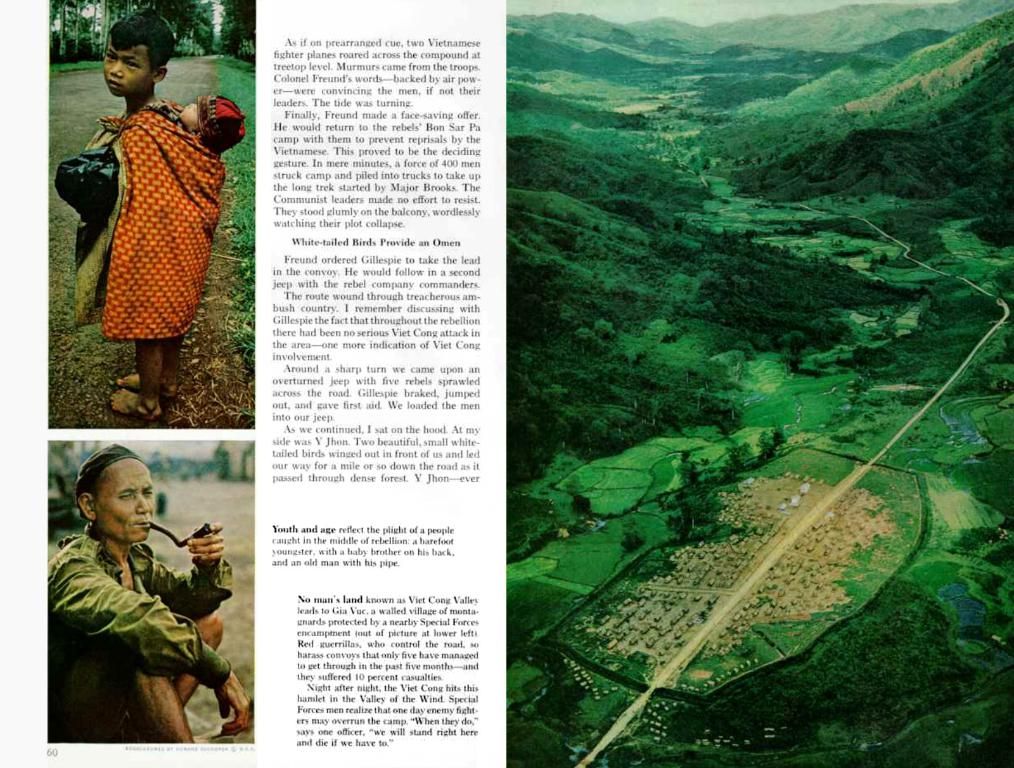Post-conflict annulment of all proceedings!
In the heart of spring, authorities in Ulan-Ude nixed a rally for kidney failure patients, scheduled to voice their concerns. These patients undergo hemodialysis multiple times a week, shelling out thousands on travel from remote villages for a procedure that isn't state-reimbursed, with the max compensation being just 2,400 rubles.
"It's a slap in the face!" exclaims Alexander from Mukhorshibirsky district. "In other regions, the travel costs for hemodialysis are typically covered, at least up to the minimum living wage. Here, it's 2,400 rubles - the maximum!"
Planned for Soviet Square, the rally represented approximately 10% of Buryatia residents requiring this therapy. On the verge of the event, officials denied permits, sparking frustration among residents.
50-year-old Natalya, a patient from the region, shares her sentiments, "Officials must have been terrified of us, the vulnerable, rallying by the administration building. No reasons for the refusal were given. Some wanted to picket solo, but not all could push through."
Without transportation assistance, patients often have to rely on taxis, which can lead to significant additional expenses. According to Natalya, the amount is laughable given the high taxi costs within Ulan-Ude and the difficulties faced by rural patients.
"Among 500 kidney failure patients in Buryatia, there are 10 wheelchair-bound invalids. Specialized transport is a necessity for them to avoid relying on public transportation and arrive on time for the dangerous procedure that spells life and death," explains Alexei from the Zaigraevsky District.
41-year-old Ivan from Ulan-Ude faces a similar struggle, spending up to 20,000 rubles on trips to the dialysis center from the Vostochny micro-district. He spends 5 hours there, three times a week, leaving him with just 15,000 rubles for living expenses.
"Before, the dialysis center offered transportation assistance, but that ceased under the guise of increased costs. Officials claim they can't provide help, but where does the money go? They've cut buses for rural villages and the city dialysis center, driving people to travel further for treatments," observes Natalya.
Despite the challenges, a coordinated protest rally might not bear fruit. As Alexander from Mukhorsibirsky District puts it, "they care nothing about humans, healthy or sick. They'll find reasons to deny us, keep their comfy chairs, and turn a blind eye to our struggles."
To stay up-to-date with the latest from Sibir.Realii, follow our YouTube, Instagram, and Telegram channels.
- Alexander from Mukhorshibirsky district is questioning the fairness of only receiving 2,400 rubles in compensation for travel costs to receive hemodialysis, as he believes it should at least equal the minimum living wage.
- The planned rally for kidney failure patients in Ulan-Ude was seeking to bring attention to the financial hardships faced by patients who need to travel for their hemodialysis treatments, a therapy that isn't state-reimbursed in full.
- The increased costs of transportation have forced many kidney failure patients in Buryatia to rely on taxis, leading to additional expenses that some find unjustified given the high costs of living in Ulan-Ude and the difficulties faced by rural patients.
- The absence of transportation assistance for patients with chronic kidney disease has led to concerns about their ability to access care in a timely manner, particularly for the 10 wheelchair-bound invalids among the 500 patients in Buryatia.








